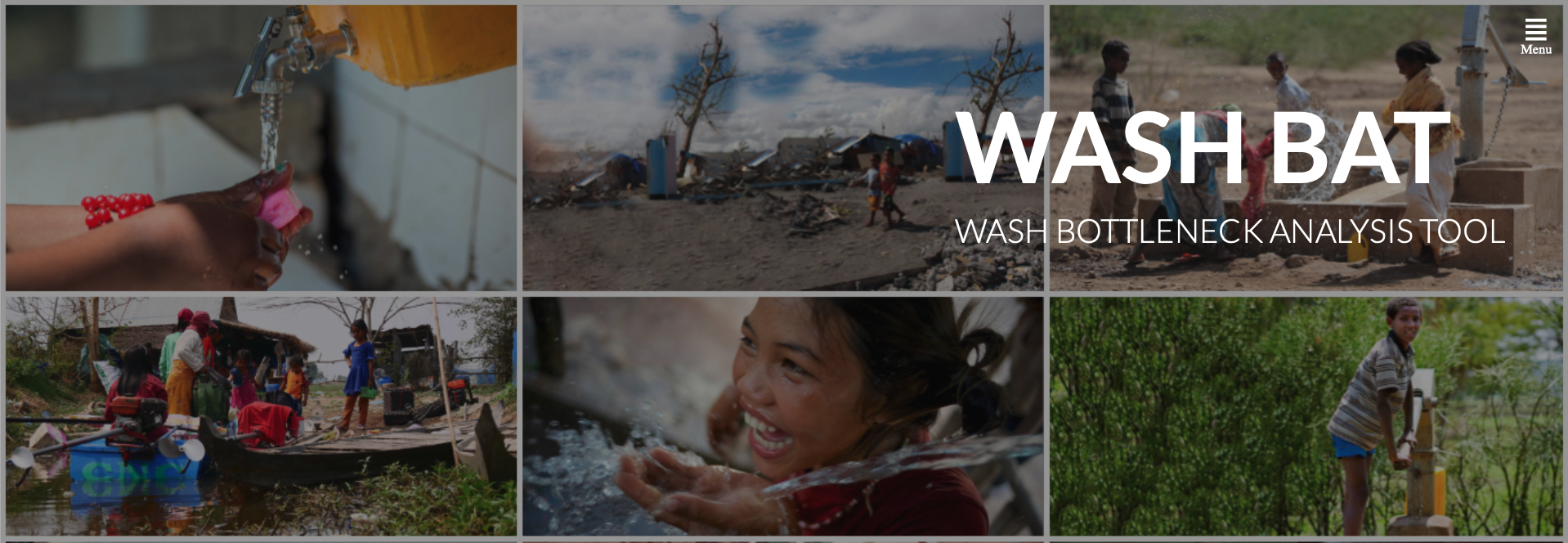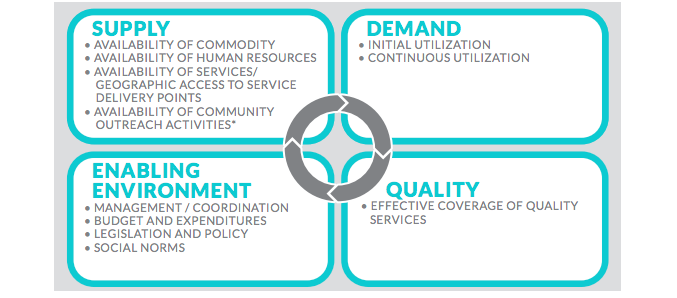|
Seth Davis, Communications Officer, Community Systems Foundation In 2016, UNICEF’s Water, Sanitation and Hygiene Bottleneck Analysis Tool (WASH BAT) was updated by CSF to become an online and user-friendly platform called WASH BAT 2.0. In an effort to reduce barriers to WASH project implementation, WASH BAT 2.0 has acted as a decision-making support system for 848 projects in over 80 countries to reduce bottlenecks in the WASH sector. Bottlenecks, or areas where a key component to success is blocked, are generally categorized by UNICEF in four areas: Due to these barriers, countries are often limited on their progress on SDG 6 Targets. In 2016, for example, UNICEF reported 1.4 million children die each year from preventable diseases like pneumonia and diarrhoea because there is a lack of infrastructure and education on handwashing.
To reduce bottlenecks, UNICEF designed WASH BAT 2.0 to be a “simplified and…flexible [tool that] works at a sub-sectoral level and focuses on ways to ensure stakeholder buy-in and expanded rollout.” In doing so, UNICEF developed the tool to align stakeholders with country-specific WASH needs and increased the sustained quality and equitable WASH services generated by projects. In this regard, the WASH Bottleneck Analysis Tool (BAT) helps increase WASH sector resources and efficiency to achieve more sustainable and equitable outcomes. Through increased dialogue with sector financiers, in particular Ministries of Finance and donors, the tool provides a rational, evidence-based approach for formulating an investment strategy that meets multiple sector aims of efficiency, equity and sustainability. This is also done through the emphasized use of limited sector resources to their best ends, in particular on the removal of major barriers to sector development. The reduction of bottlenecks is not the only key to the sustainability, however. As UNDP points out, the localization of decision-making and the support from domestic partners is also crucial to the success of WASH initiatives. Guided by Sustainable Development Goal 6, UNICEF Country Offices carefully consider the localization of project efforts and continue to collaborate with local NGOs and in-line ministries to host workshops on WASH BAT 2.0. In one instance, UNICEF collaborated with the UNDP-SIWI Water Governance Facility (WGF) to hold a capacity-building workshop on WASH BAT 2.0. In an effort to improve sanitation for all by 2020 in Ethiopia, the workshop determined key bottlenecks that lie in “the complex interplay between institutional structures and processes that determine how effectively human, material and financial inputs are turned into sustainable access to drinking water supply and sanitization.” When WASH BAT 2.0 is utilized with national ministries and local partners, countries are able to develop WASH-related national policy, create action plans and review their current WASH projects sustainably. Considering “2.3 billion people still lack a basic sanitation service and among them almost 892 people still practiced open defecation,” as noted in the WHO/UNICEF JMP Progress on Drinking Water, Sanitation and Hygiene: 2017 Update and SDG Baseline, the continued use of WASH BAT 2.0 to help guide policymakers is imperative to the success of national WASH initiatives.
0 Comments
Leave a Reply. |
Join the CSF data revolution webinar tomorrow!
COMMUNITY SYSTEMS FOUNDATION – EST 1963
+1 212 500 1335
data-driven sustainable development


